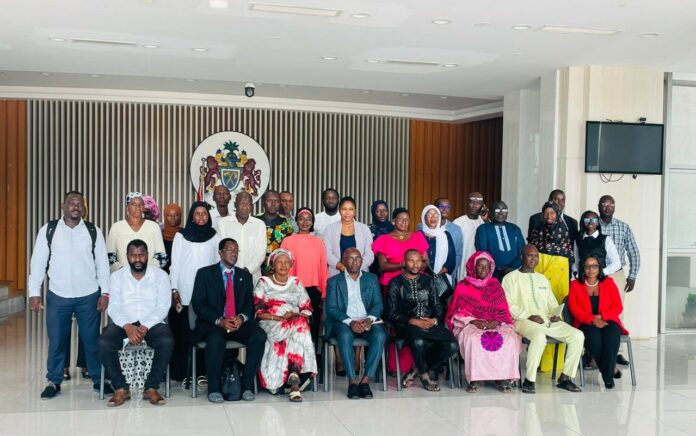By: Zackline Colley
The Food Safety Quality Authority (FSQA), along with its partners, validated the draft groundnut regulation during a day-long ceremony held at the Sir Dawda Kairaba Conference Centre in Bijilo last week.
The validation process represents one of the final stages of procedures before the draft is submitted to the cabinet for approval. Its primary aim was to substantiate the draft groundnut regulation in the country. It is worth noting that in 2014, the Food and Agriculture Organization of the United Nations and the World Health Organization launched the Codex Trust Fund to support the meaningful participation of developing countries in Codex activities.
Through the Food Safety and Quality Authority, The Gambia was awarded the Codex Trust Fund to, among other things, develop regulations for food commodities of national interest. Consequently, the Authority initiated the development process of a groundnut regulation using a multi-stakeholder approach.
Following a consultative and procedural process, the draft regulation has undergone all necessary reviews and amendments, informed by contributions and comments from various national and international stakeholders.
During the validation event, Mamudou Bah, Director-General of the FSQA, emphasized that groundnut is one of the most important cash crops in The Gambia. He noted that it has been a major source of foreign exchange for the country.
He stated, “If you consider the consumption of commodities in the country, groundnut happens to be the second-largest consumed product in The Gambia due to its incorporation into numerous recipes and dishes. We have made it a proudly Gambian dish known as ‘domoda,’ which we enjoy most of the time. Groundnut is a common ingredient in many of our recipes.”
Bah further highlighted that groundnut is one of the highest-risk commodities when it comes to food safety due to its mycotoxin content, which can be found throughout the groundnut value chain, especially during storage, leading to mycotoxin contamination. This contamination can, in many cases, result in liver cirrhosis.
Dr. Mustapha Ceesay, the country representative of the Food & Agriculture Organization (FAO) in The Gambia, recalled that FAO had been working with FSQA since 2010 to enhance the groundnut value chain. This collaboration was facilitated by a project between FAO and the African Union, with FSQA being chosen by the government to lead the effort to enhance the groundnut value chain.
Dr. Ceesay stated, “Historically, The Gambia has strong ties to the groundnut value chain. In the past, we faced challenges related to aflatoxin contamination in Gambian groundnuts, preventing both The Gambia and other African countries from meeting EU regulations and exporting groundnuts to EU markets.”
He further explained that if The Gambia cannot sell groundnuts at premium prices, its foreign exchange earning capacity will significantly decline. To address this issue, FSQA is introducing this regulation as a guiding document to set standards at the producer level, ensuring that the groundnuts produced meet the required quality standards.




